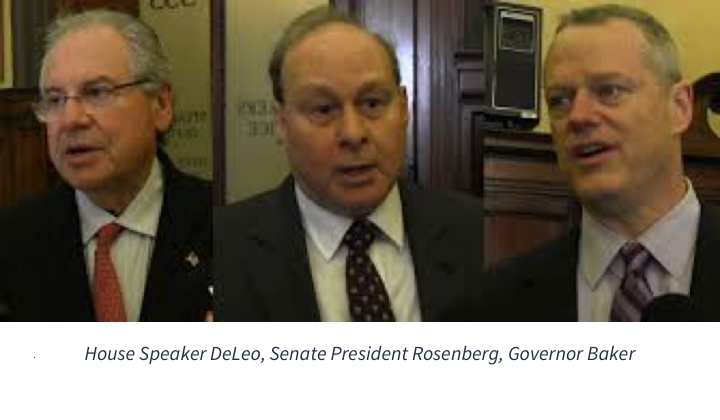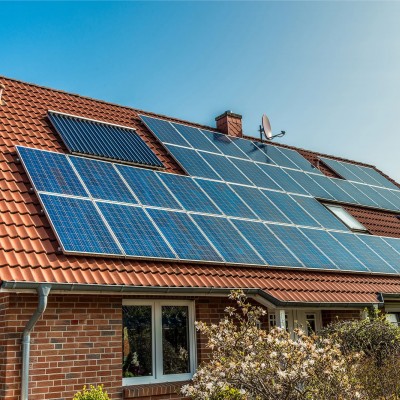Massachusetts Should Boost Renewable Targets

Massachusetts House Leaders are currently drafting an omnibus energy bill to secure new supplies of electricity as much of the region’s fleet of aging nuclear, coal, and oil power plants are now set to retire. Any proposed energy legislation should achieve three key goals. First, the bill must provide reliable and affordable clean energy to all residents, especially those that have been overburdened by pollution or energy costs and underserved by regional economic growth and opportunities. Second, it must act as an engine for regional economic growth by keeping more of our energy dollars and jobs in New England. Finally, it should maintain Massachusetts’s leadership on clean energy policy and ensure we meet our targets for reducing climate-disrupting carbon pollution.
A policy change that advances all these goals will double the rate of increase for our Renewable Portfolio Standard (RPS), as proposed by state Sen. Ben Downing. The RPS sets the amount of renewable energy electric utilities are required to purchase each year. The RPS is currently set at 11 percent and increases by 1 percent a year. At that rate, by 2030 only 25 percent of our power will come from clean energy. In contrast, Maryland just increased its RPS to 25 percent by 2020, a full ten years ahead of us, while California requires 50 percent by 2030 and Hawaii will be all the way to 100 percent by 2045.
We can and must do better. Massachusetts is ranked first in the country at reducing energy waste through the state’s successful energy efficiency programs. These programs have stabilized electric bills for businesses and families and brought energy costs well below the national average, while reducing energy demand. However, Massachusetts residents still spend $22 billion a year on energy and more than 80 percent of that money leaves the state.
Today, renewable energy is more competitive than ever. In 2013, the Commonwealth’s electric companies signed cost competitive contracts for onshore wind power in New England and the price has only dropped since. The average cost of solar power, prior to any incentives, has decreased nearly 50 percent since 2008 and the cost of offshore wind electricity is expected to drop over 33 percent by 2023, if we support robust deployment.
Doubling the demand for clean, renewable energy by increasing the RPS to 2 percent per year would go a long way to restore our clean energy leadership and boost our economy, while reducing our dependence on costly and dirty natural gas. While some have been claiming we should spend billions of ratepayer funds on new fracked gas pipelines, their argument has been undercut by the news of Kinder Morgan cancelling its Northeast Energy Direct project due to a lack of customer demand.
A November 2015 study by Attorney General Maura Healey concluded that we can meet our current and future energy needs without new pipelines that destroy conservation lands, devalue private property, and increase our dependence on the carbon pollution and price volatility of fracked gas, and Kinder Morgan has provided ample vindication for her stance.
We strongly support legislation that rejects new fracked gas pipelines, and that boosts offshore wind, onshore wind, and solar. But that is all on the supply side. By doubling the RPS rate of increase to 2 percent annually, and continuing to help homes and businesses save energy, we will be addressing the equally important demand side. Ramping up the RPS will send the necessary market signal that clean energy is here to stay, and coupled with utility procurement using long term contracts, will ensure that new wind projects get built and more jobs are created.
We can have affordable and reliable clean electricity that builds a stronger economy. We just need our officials to make it happen this year by doubling down on efficiency, wind and solar power.
Emily Norton is chapter director of the Massachusetts Sierra Club. Francis Pullaro is executive director of RENEW Northeast.
Originally posted at Commonwealth Magazine


